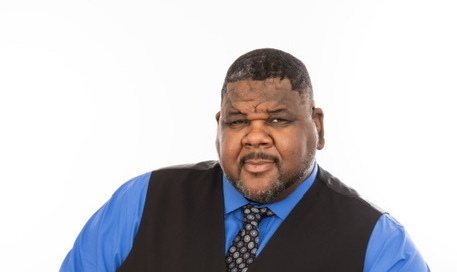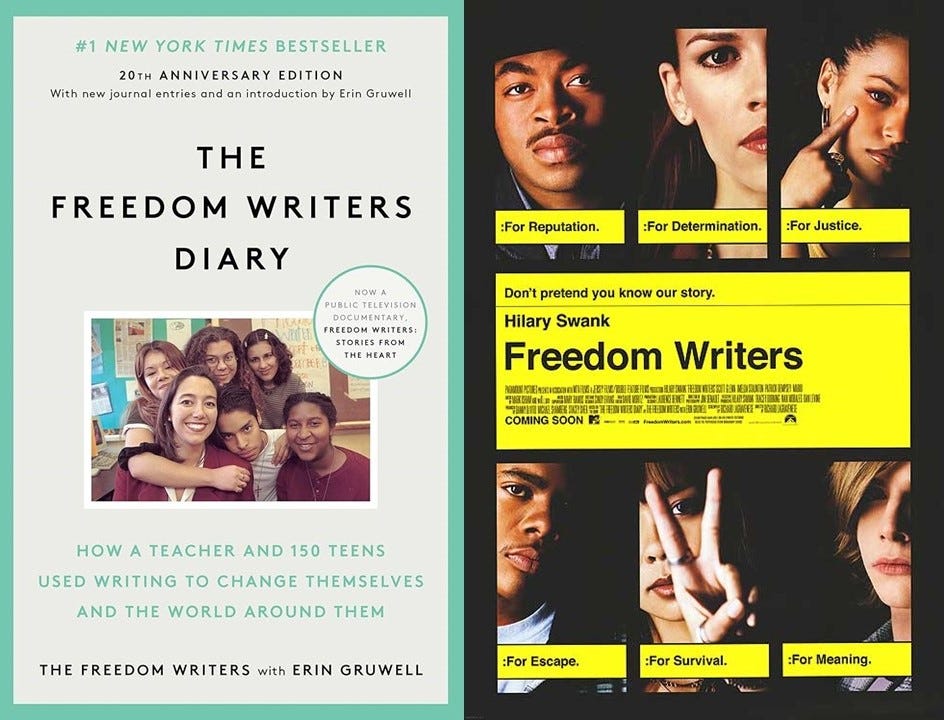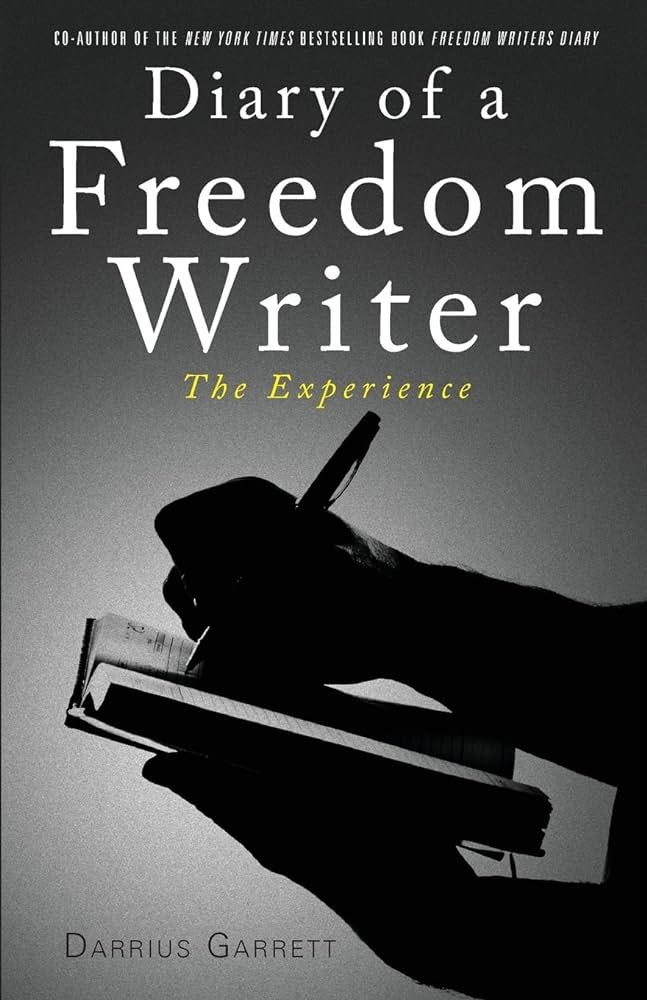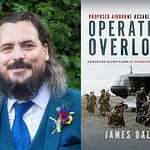Back in 1994, Darrius Garrett was among the students at Woodrow Wilson High School who were deemed “unteachable” and “at risk.” These students had all been involved in gangs and other nefarious activities that had impacted their lives – and some were even living on the streets. It got to the point where not only did the school system give up on them, but they also gave up on themselves. Each day, they were just trying to make it through, while living in fear of what could happen to them.
One day, a new teacher by the name of Erin Gruwell entered the classroom and saw potential in all of them. She had them all write in their own personal journals on their lives in and out of school, and she also began to educate them on important events such as the Holocaust and how to critically think on the meaning and understanding of certain forms of media they consumed. Gruwell’s teaching method inspired and transformed the lives of 150 students at the high school, and the story was captured on numerous news outlets nationwide. It would then be turned into a 1999 book called “The Freedom Writers Diary” and later adapted into a 2007 movie called “Freedom Writers,” starring Hilary Swank.
To an outsider, you wouldn’t know that Garrett was one of the Freedom Writers from Gruwell’s class, because the book anonymizes the journal entries. When asked if he felt the impact of his story and the stories of others was lessened because of the decision to keep their names hidden, Garrett said it was better to keep the stories anonymous due to their nature and the legal issues that could arise if their real names were used.
“A lot of the stories were very raw and hardcore. When you use your name, it becomes a more legal issue where you worry about people suing and things of that nature. We had to keep it anonymous because the simple rawness of our stories was so captivating. We didn’t want anything to do with our life rights or anything to where our story could never be told again.”
Garrett said he has always been able to tell people of his involvement in the Freedom Writers movement. But it wasn’t until he reached adulthood when he realized how his story could inspire others going through similar challenges in their lives.
“When the movie came out, the first person that I appreciated expressing my involvement with the Freedom Writers was my mom. For the 20th anniversary of the book, we wrote other stories – ‘Where are they now?’ type stories. And the story I told was bringing my mom to the premiere of the ‘Freedom Writers’ movie and how important that was, because I simply wanted her to finally see me and be proud of me. Out of all these times I tried to make my mom proud of me, this was a situation that occurred where I finally felt that she was proud of who I was.”
The movie adaptation also doesn’t give the real names of the students who were involved. Instead, it creates characters that were inspired by their stories. In the movie, Garrett’s story is told through the character of Marcus. By the time the movie was released, Garrett had already been in the process of becoming more open about sharing his story with others.
But he then began facing another challenge. There were others claiming the character of Marcus is based on them.
“I had to set the record straight on that and let people know. Even to this day, my team and I see little comments on different YouTube videos where people are asking other people, ‘Hey, are you Marcus in the movie?’ So that’s why it was so important to do my YouTube channel and everything else, so people can understand. If they want that story, they can have that story, as long as they go through the stuff that it took, because I didn’t want to go through that. I didn’t want my friend to kill himself. I didn’t want to be homeless. I would have rather lived a better lifestyle than that and say, ‘No, that wasn’t me.’ But that was me and that was my story.”
This year marks the 25th anniversary of the release of the book, which has since become a New York Times bestseller. But, as Garrett stated, it wasn’t until the release of the movie that the book started to get more attention. The initial plan was for Gruwell and her students to pen the book for the children in their neighborhood to show how they overcame their challenges, and any children facing similar situations can overcome them, too.
“We were writing this book so other young kids from our neighborhoods could stand on our shoulders and tell their stories and reach the status that we never thought we could reach. We didn’t have the plan, in hindsight, to be a ‘New York Times’ bestseller, to have a hit movie and everything else. So, it was all amazing, and I think that was the point that everything just kind of blew up – it was from the time that the movie was released.”
Since the popularization of the Freedom Writers story, Garrett has gone on to venture into many different territories such as motivational speaker, actor, and published author. In 2013, he released his memoir, “Diary of a Freedom Writer,” which gives more detail to his story than what was discussed in “The Freedom Writers Diary” and the “Freedom Writers” movie.
“It takes you home and grows you up with the Freedom Writer, such as myself, showing the things that we went through from the point of becoming a Freedom Writer to becoming a man [and] a family man. I went from somebody who, at age 16, feeling like I wasn’t going to be able to see 18 or 21. You see all the different milestones, and you see this young man that’s alone and homeless and goes from having nothing and being homeless, to have some fame and becoming the man I never had in my life.”
Taking on different roles such as the ones he’s doing now is something Garrett said was bound to happen, all thanks to his involvement with the Freedom Writers. His ability to wear many different hats has proven to be successful in the paths to which he’s ventured. But he also looks at a way of leaving a legacy after he is gone.
“Everybody can do things for money, but I’ve met so many people that have so much money and they’re so unfulfilled. I used to ask myself, ‘Why? You’re rich. You can buy whatever you want.’ But at the end of the day, beauty and everything that you need to feel comes from inside. It made me realize, ‘What am I going to be known for? What’s going to be my story?’ It’s important to me to leave a legacy. That’s what influenced me to act and to speak and [to start] my YouTube channel.”
Even with the chaos that consumes our everyday lives, Garrett encourages everyone to have something to take notes – whether it’s a journal, an app on your phone, or whatever it may be. And if you have an idea that you want to see happen, make a note of it, so you can come back to it later and build upon it from that initial thought.
“Whatever you’re thinking of, do it. Don’t just think of it, do it. Write it down. Pull up your notes and just write down the thought. Make your plan, do what it is that you’re aspiring to do.
Garrett added that, for those who are fans of the story, others from the Freedom Writers are currently working on projects themselves. He didn’t get into specific details, but Garrett did note that he is still in contact with the people from his high school who were in Gruwell’s class.
“We were a family, we really were. We grew up together and went through things, and we cried together. When you go through things like that and you have such strong camaraderie, it’s hard to break that bond. Granted, we do bicker and have things that go back and forth like brothers and sisters do, but at the end of the day, when we come together. It’s all love. That’s why I love being a part of that group.”
To listen to the full interview, please download the above podcast or watch it in video form below. You can learn more about Darrius Garrett by visiting his official website.















Share this post